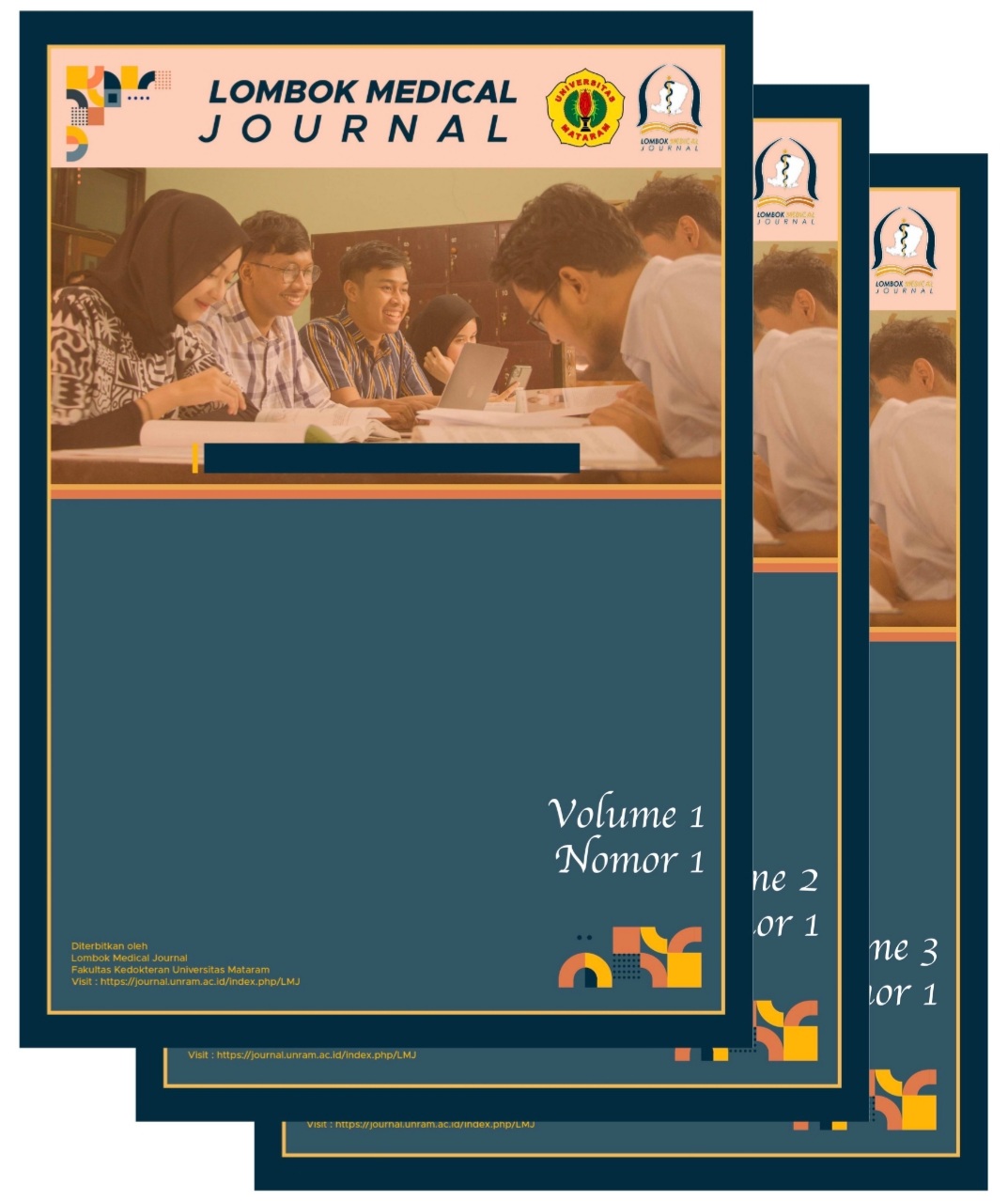Paradoxical Reactions in Tuberculous Meningitis : Clinical Insight and Management, a Literature Review
DOI:
https://doi.org/10.29303/lmj.v4i3.591Kata Kunci:
Tuberculous meningitis, paradoxical reaction, IRISAbstrak
Tuberculous meningitis (TBM) is a type of TB with the most severe clinical symptoms of extrapulmonary tuberculosis, with high mortality and neurological morbidity rates. Paradoxical reactions are clinical symptoms characterized by the worsening of existing tuberculosis lesions or the emergence of new lesions despite receiving appropriate antituberculosis therapy (ATT), often leading to diagnostic confusion and management challenges for patients. This study aims to explain the definition, epidemiology, mechanism, clinical manifestations, diagnosis, and management of PR in TBM, based on various literature reviews. The main findings show that PR is triggered by complex immune mechanisms, often involving an excessive inflammatory response to mycobacterial antigens and known as Immune Reconstitution Inflammatory Syndrome (IRIS) in HIV patients. PR presents with varying clinical symptoms, including fever, headache, impaired consciousness, as well as hydrocephalus and tuberculoma on radiological examination. Therefore, clear clinical guidelines are needed to optimize the diagnosis and management of PR in TBM.
Keywords: Tuberculous meningitis, paradoxical reaction, IRIS























